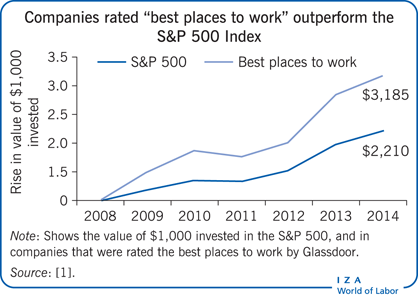Elevator pitch
Recently, large companies like Google have made substantial investments in the well-being of their workers. While evidence shows that better performing companies have happier employees, there has been much less research on whether happy employees contribute to better company performance. Finding causal relations between employee well-being and company performance is important for firms to justify spending corporate resources to provide a happier work environment for their employees. While correlational and laboratory studies do find a positive relationship, the evidence remains sparse.
Key findings
Pros
Several studies show that a positive mood induces subjects to spend more of their time in more creative tasks.
Positive emotions influence the capacity for innovation.
Experimental evidence generally shows that positive emotion improves memory.
Most studies report that positive emotions improve performance.
Cons
Most experimental studies have been based on small numbers of subjects who were not incentivized to complete the tasks assigned to them in a laboratory setting.
Experimental laboratory evidence is based on student subjects and so is not representative of the working population.
Most studies based on real-world data have not been designed to demonstrate causality.
A minority of studies report small or even negative effects of positive emotion on productivity.
